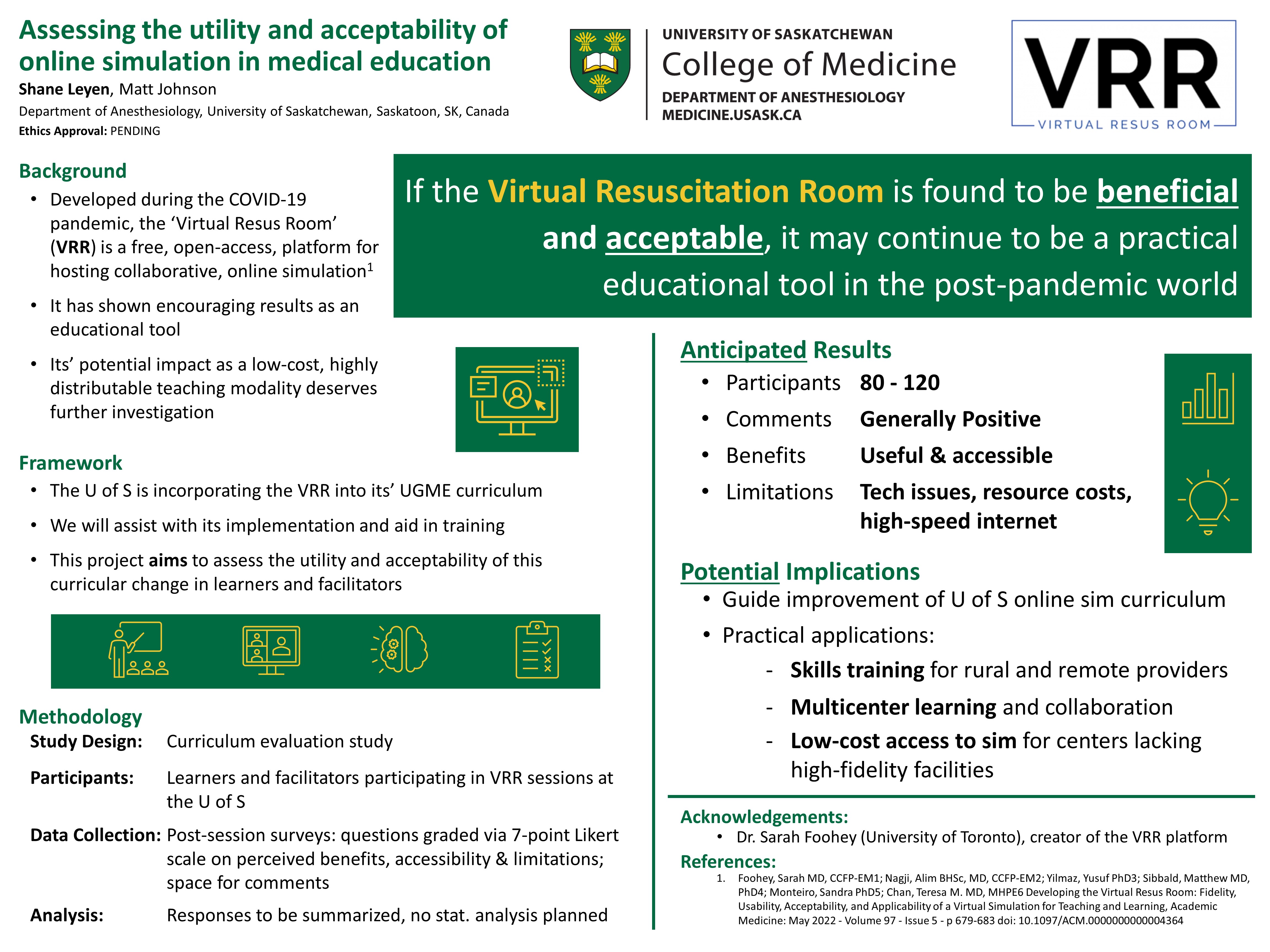
B1.1: Assessing the utility and acceptability of online simulation in medical education
Shane Leyen, Matt Johnson
Introduction: Online simulation utilizes computers to connect multiple participants and place them in dynamic, interactive, team-based scenarios. Developed to provide collaborative learning opportunities during the COVID-19 pandemic, the ‘Virtual Resus Room’ (VRR) is a free, open-access platform for hosting online simulation that has shown encouraging initial results as an educational tool. The VRRs potential impact as a low-cost, highly distributable teaching modality is deserving of further investigation for utility in medical education. Framework The University of Saskatchewan plans to incorporate online simulation via the VRR platform into its’ medical curriculum. This project aims to assess the utility and acceptability of this curricular change in learners and facilitators.
Methods: This curriculum evaluation study will seek feedback from medical learners and facilitators participating in VRR sessions at the University of Saskatchewan. Post-session surveys will include space for comments and questions graded via a 7-point Likert scale on perceived benefits, drawbacks, and accessibility. Responses will be summarized with no statistical analysis planned. As a curriculum evaluation study, ethics approval may not need to be obtained, but discussions are ongoing.
Anticipated Results: Learner and facilitator feedback is expected to be generally positive regarding the usefulness, ease of use, and accessibility of the VRR. Anticipated critiques include technological issues and the requirement for high-speed internet.
Potential Implications: If use of the VRR is found to be beneficial and acceptable, it could be a valuable tool for connecting medical trainees at distributed learning sites, providing CME or skills training to rural and remote providers, facilitate multicenter learning and collaboration, and more. With a wide range of potential applications, the VRR may continue to be a practical educational tool in the post-pandemic world.
